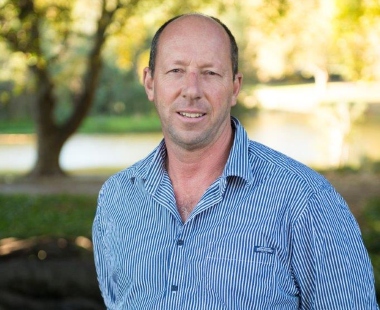Succession has become a hot topic, and this has been covered previously in Landline articles. These have dealt predominantly with the process and strategy required to initiate the process and get results that should meet the outcomes that will ensure succession of your business.
Have you considered what is being asked of the next generation, and if they are equipped for the task.
This article is to raise the questions:
- How ready is the next generation to take on the responsibility?
- Do they possess the maturity to balance life and business?
- Has the succeeding generation grasped the concept; they are taking responsibility for the retention of the family wealth.
- Do they understand the business is the income earning capacity of all generations (older and younger) who are reliant on the cashflow?
I am reminded of a personal experience in the Hunter Valley managing an irrigated lucerne hay farm in my early 20’s. The place was owned by a group of absentee owners, and it was my first management gig after graduating from college. The family next door were dairy farmers, and his son, Richard, was of similar age to me. As we were both guilty of being ‘young men still behaving like boys’, if we were working alongside each other, we often chatted over the fence. The usual standard ego boosting conversations common at that age.
On one of these occasions, I was ‘talking up’ the onerous reporting process I had to complete periodically, and with great bravado Richard said; “Tell them to shove it, none of that will help turn that shit show around and make them any more money!”
Firstly, I took that as a personal challenge, and was even more determined to show him I could turn ‘that shit show around’, but more importantly I realised there was a significant flaw in his advice. The owner had in-fact entrusted me with the task of making sufficient money from the farm to at least cover costs and hopefully make a return on the investment, which in turn justified paying me. I replied with some suitable ‘ego protecting’ response about doing what you need to, to continue get paid.
Richard thought about that ever so briefly and said, “Well, I hope the old man never passes this on to me. I’m happy to drive the gear and do the irritation (irrigation), but I’m not getting up at 4 in the morning to push cows around, wash udders and do the books – he can have that”. Richard had a complete disconnect between why he wanted to be there and what was required for him to stay there.
We remained good mates for the 2 years I was there, but it was clear business succession was not on his radar.

Eventually their farm was absorbed by a larger dairy farmer who was assisted by his daughter (Rebecca) who was also our age and Richard thought was fair game. Good looking and smart, Rebecca is now the principal of that business which has grown to be a large, successful, and influential dairy operation in the Hunter Valley. As far as I know, Richard is working in the Coal mines in his 60’s, possibly still
dreaming about Rebecca.
The point of the story is, Richard didn’t really understand my 4 opening questions, or what it takes to succeed in management of the farm business. He thought it was all about the field work. He missed the memo that there is an enduring link between the ‘fun stuff’ and the need to take on the responsibilities to make the business function.
As a further note on the experience, I must have done all right there, as the owner had a much bigger dryland operation further inland with much bigger problems, and they moved me there to ‘fix that cash flow’ next.
The pressures I experienced during this latter period took a toll on my humour, something that lead my father to remarking to me: “You’re getting surly and unpleasant, and you should take a good look in the mirror.”
This was an early warning that the responsibilities of that job on me as a young man, was extinguishing my humour and tolerance, and it was adversely affecting my character. On reflection, that was a message delivered painfully well, but sympathetically enough for me to learn and grow. He was a wise man who was protecting me from his own experience.
Farm business managers (men and women) can often be seen as tough, hard, and typically straight shooters. There is no risk, these are traits that are needed to carry on the business in a timely fashion, often in adverse conditions. They manage complicated logistics and work against the elements of mother nature with a great deal of agility.
In addition to these management skills, they are responsible for large transactions and financial commitments in advance with no tangible guarantee of recovering that investment. In the present era the balance sheets have grown to a point where they exceed most small business tests. The retention of the family wealth will be almost completely dependent on the successful and profitable operating of that business.

It is undoubtedly a huge responsibility to thrust onto someone in their 20’s or even 30’s. So how well prepared are they to take on these tasks without falling victim to the pressure and possibly falling foul of the character test.
Like a Newton’s Cradle the knock-on effect of business pressures has a resonating effect on other equally important parts of life, with the path of least resistance giving way to the pressure on the other side.
It becomes a fine balance and delicate art in communication to get the next generation to stop and think of the long-term needs of the business. To stop and understand the need to think before engaging 600 Hp and 40 tonnes of equipment, but at the same moment, have them understand there is no time to ‘back off’ in the production department. The business and the commercial pressures of the agribusiness
world won’t wait for them.
Whilst the younger generation seems to take the technical aspects of the business in their stride, as if they were born hard-wired for IT and technology, there is no substitute for learning the fundamentals of business through raw exposure.
So, as a parent, and a responsible business director, how do you gauge the preparedness of the next generation to take on the business?

Like the delicate example of Newtons Cradle shown – it’s too easy to over burden a young mind with responsibility and turn a robust instrument into a dangerously fragile situation. The individual’s appetite for responsibility will emerge in their fields of competence.
In the Hunter Valley example, Richard had the competence in the field operations and no understanding or inclination to master the business needs. On the other hand, Rebecca was interested in the money making and the retention of wealth. Whilst she understood the need to have high protein green-chop post-milking and the storage of silage for the winter and all the fun things, she was more competent at mastering the pointy end of the business. Efficiencies in the milking shed, marketing the milk effectively to the dairy company and remaining viable to absorb smaller target operations.
As the title of this suggests – Someday this will all be yours, is a challenge. Preparing the young minds for the complexity for business succession is as important as instilling a good work ethic.
So – that’s the problem – what are the solutions?
- Engage all the succeeding generation early – giving them an appreciation for both sides of the business environment. (Income vs Expenditure: Physical vs Financial. Production vs Sustainability)
- Provide early exposure to all aspects of the business. Interest in some disciplines may come from unexpected quarters.
- Pass responsibility of baseline decision early making under a watchful eye.
- Engage them in meetings with professionals so they learn to seek specialist advice.
The successors of the business must want to succeed so badly they are prepared to commit to learning the hard stuff. The successors will need to earn the right to be handed over the income earning capacity of the previous generation.
The preceding generation won’t allow their lifetimes work loose unless the successors show both competence and confidence with production, commercial decision making and understanding the financials.
How will you gauge the readiness of your successor/s? The complexity today far exceeds the humble beginnings of preceding career, but the principles remain relevant.
Every aspect of the business needs to be learned and managed – not just the fun stuff.


